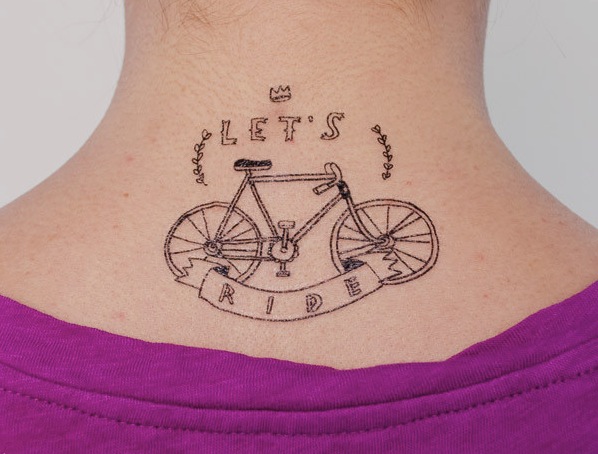 Naomi Klein’s interview in Grist this week is smart, insightful, and half right. Her assessment of the obstacles to solving climate change — from ideology to misplaced faith in green consumerism — are exactly right. And she’s right that fixing this problem means changing how the world does business.
Naomi Klein’s interview in Grist this week is smart, insightful, and half right. Her assessment of the obstacles to solving climate change — from ideology to misplaced faith in green consumerism — are exactly right. And she’s right that fixing this problem means changing how the world does business.
But Klein is wrong in her more serious assertion, first articulated in her “Capitalism vs. the Climate” article in The Nation, that we can save the planet only if we abandon capitalism:
Responding to climate change requires that we break every rule in the free-market playbook and that we do so with great urgency.
The deeper problem is not that our markets are too free; it’s that they are woefully rigged in favor of pollution. Which is also the main reason the Earth finds itself in peril. (I’m pretty sure Klein would agree with that point.)
Think of it this way: As the system is set up now, my 1-year-old son has less right to grow up breathing clean air than to get his driver’s license and join the polluting masses 15 years hence. The reason is simply that markets are constructed so that few have to pay for the pollution they produce.
Every time I open my fridge, turn on the heat, hop in a car (or on a train), or do much of anything, someone else incurs the costs for the pollution my actions produce.
When I fly from New York to Austria to see my parents, my flight produces about one ton of carbon dioxide emissions. That ton causes at least $20 worth of damage to the atmosphere. But I don’t pay a penny of that. Every one of the planet’s 7 billion inhabitants pays a tiny fraction of a penny for my seeing my parents.
Klein offers two solutions. The first calls for a radical rethinking of how we lead our lives, opting for a more leisurely path. A lovely thought. I’d much rather spend weeks at a time visiting my parents in Vienna and in-laws in Bangkok (and take leisurely boat rides to get there) than embark on multiple, jetlag-producing “vacations.”
So yes, let’s create a culture where it’s OK for everyone to take off a couple months in the summer, and perhaps another one around the winter holidays. It works for the Swedes, why not the rest of us?
But Klein realizes this sort of cultural change won’t happen overnight and wouldn’t by itself stabilize the climate. Which leads her to call for “taxing the rich and filthy.”
Nice turn of phrase, but, unfortunately, it confuses the issue. It’s really about taxing the filthy. It’s not about taxing anyone for the sake of sticking it to the man. It’s about asking everyone to pay for their own pollution instead of shoving those costs onto society.
I’d gladly pay the $20 extra for my flight to see my parents. But Klein argues, correctly, that nothing will be accomplished if the only people paying are do-gooders who want to feel better about their carbon footprint. If we want to affect the planet, everyone has to pay the cost of their pollution. Only then will we truly level the playing field.
That all seems like wishful thinking, but it can be achieved. The European Union, starting Jan. 1 of this year, put a carbon price on every flight to and from the E.U.
The program is starting modestly; my flight to see my parents might cost around $2 extra, not the $20 or more that would make up for my pollution. Still, it’s a start. And keep in mind that the E.U.’s system covers a third of all miles flown globally. That’s no longer a bunch of greens spending extra on their organically sourced lettuce. That’s change on a scale the planet notices.
Europe, of course, is not alone. California will soon have the world’s most comprehensive cap-and-trade system limiting global-warming pollution. Australia just passed a carbon price. British Columbia has had one in place since 2008. India has a coal tax. China is pursuing carbon trading as part of its 12th five-year plan. It seems only Washington is falling further and further behind.
All of these are the kinds of changes that work with, not against, market forces and human desires — desires that capture the imagination of billions and make many of us want to buy the latest iAnything or fly on that Airbus 380.
My real argument with Klein is that in trying to escape capitalism, she is trying to evade human nature. We could and should work to make human desires less material. Some of the world’s rich may well be in a sufficiently comfortable position to be able to lead lives in sheltered solitude on their organic farms upstate, but I’m afraid that’s a losing proposition for the globe. (Just look at the density of iPads at any environmentalists’ gathering to know that limiting your own desires isn’t quite as easy as talking about others doing the same.)
It’s not about a full-scale assault on human desires, capitalism, and free markets. That’s another agenda and another debate. It’s about freeing markets, and in the process freeing all of us to do the right thing. It doesn’t get more ethical than that.




